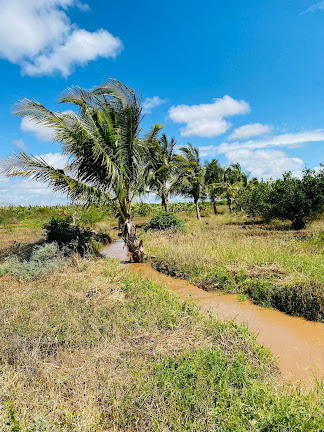When people talk about investing in Somalia, real estate usually dominates the conversation. Land is valuable, no doubt about it but it’s only one piece of a much bigger puzzle. Somalia’s economy is full of untapped potential, especially for those looking to make a difference while building sustainable businesses.
This article takes a look at other sectors that are open for investment. Whether you’re interested in small-scale ventures or long-term partnerships, there’s more than one way to contribute to Somalia’s development and create financial value at the same time.
1. Agriculture and Agribusiness
Agriculture is the largest sector in Somalia, yet much of the country’s food is still imported. This gap creates clear opportunities.
For example, citrus farming (lemons, oranges, and limes) is gaining momentum in regions like Lower Shabelle. With proper irrigation and harvesting techniques, even small farms can become profitable. Beyond raw produce, there’s room for value-added processing: lemon juice bottling, dried fruit packaging, or even essential oil production.
Real-world idea: Partner with local farmers to supply fruit for juice production. Set up a basic processing facility and focus on selling to local hotels or supermarkets.
2. Renewable Energy
The demand for reliable electricity is growing, especially in urban centers. Solar power systems are becoming more common as people seek alternatives to diesel generators and inconsistent grids.
Investing in solar installation services, maintenance, or importing quality equipment can make a real impact and turn a profit. Businesses, mosques, and rural homes are key customers.
Real-world idea: Start a small business that supplies and installs solar kits for homes and small businesses. Train local technicians and offer maintenance plans.
3. Technology & Digital Services
Somalia’s tech scene is young but promising. Mobile money, e-commerce platforms, and delivery apps are already part of daily life in cities like Mogadishu and Hargeisa. There’s space to support local innovation or introduce digital services like online education, digital marketing, and remote work hubs.
Real-world idea: Support a local software team to build a logistics app or small delivery platform. Even basic services can be scaled up with the right tools and mentorship.
4. Healthcare and Wellness
Access to healthcare is improving, but many areas still lack basic services. Small clinics, diagnostic labs, and pharmacies are in demand. Mobile health services such as traveling nurses and telemedicine are affordable ways to reach more people.
There’s also growing interest in health-focused businesses like fitness centers, herbal products, and wellness coaching.
Real-world idea: Open a basic diagnostic center in a mid-size town, offering services like blood tests, pregnancy scans, or blood pressure checks. Train local staff and work with licensed professionals.
5. Education and Training
Skills training is one of the most powerful investments anyone can make. Vocational centers that teach construction, electrical work, tailoring, or basic IT skills are always needed. English language centers and online tutoring services are growing, especially among youth looking for better job opportunities.
Real-world idea: Launch a weekend coding bootcamp in a city like Mogadishu, using laptops and free software tools. Partner with schools or community centers for space.
Conclusion: The Future Is Open
Real estate will always be a valuable asset, but it shouldn’t be the only option on the table Somalia’s development needs go beyond buildings into the fields, the clinics, the classrooms and the digital space.
Investing in these sectors helps build a stronger, more self-reliant country. For those with resources, skills, or networks now is the time to think broader, act smarter, and invest with purpose.
Have a project or business idea you’d like to see featured? Reach out — BuildHub Somalia is here to share ideas, highlight progress, and connect vision with action.



Comments
Post a Comment